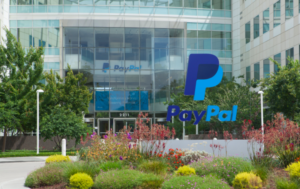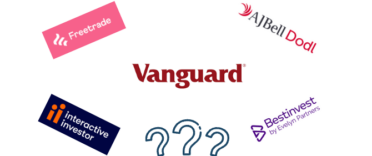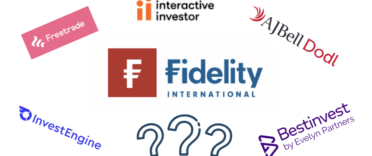 PayPal has long been a market leader in online payment services. However, it now has a £12 fee for accounts that have been 'inactive' for 12 consecutive months - as described in our article 'PayPal to charge £12 fee on 'inactive funds & how to avoid it' - leading some people to consider alternative options.
PayPal has long been a market leader in online payment services. However, it now has a £12 fee for accounts that have been 'inactive' for 12 consecutive months - as described in our article 'PayPal to charge £12 fee on 'inactive funds & how to avoid it' - leading some people to consider alternative options.
What is PayPal?
PayPal provides a secure, online payment platform that allows users to make and receive payments, as well as send money. Since its launch in 1998, it has become staggeringly popular across the globe, helped in no small part by its acquisition by eBay in 2002, which saw it positioned as the favoured payment method on that platform.
PayPal's fans like the fact it is so widely used across a range of online merchants, as well as the ease at which it allows money transfers to friends, family and small businesses. Also, while there are fees for business users, there are no transaction fees for personal accounts.
PayPal's critics cite examples of the company freezing or closing down accounts with little warning. There are also examples of individuals being subject to fraud when using their PayPal account, although the firm has a buyer protection policy to protect consumers, as well as robust customer service. Users must, however, be aware of the potential £12 charge on unused accounts, which was introduced in December 2020.
Is PayPal safe?
In terms of the platform itself, the service is secure and encrypted. However, while it offers a good level of safety through its buyer protection policy, it doesn't provide consumers with the same cast-iron guarantee as section 75 of the Consumer Credit Act, which offers complete peace of mind on purchases over £100. More details on section 75 and what it covers can be found in our article 'Section 75 of the Consumer Credit Act explained - your rights and how to claim'.
In short, while PayPal's buyer protection policy should be sufficient in most circumstances, it is worth keeping in mind that it is simply something the company has put in place rather than being enshrined in law like section 75 of the Consumer Credit Act. In addition, it is worth noting that PayPal only protects against the items not being as described by the seller or not being delivered as agreed, while section 75 is more far-reaching.
Are there any alternatives to PayPal?
While PayPal is the undisputed giant of the sector, there are alternatives that allow people to send money, receive payments and make purchases. Here we consider the best options, taking into consideration the functionality of the service, the fees and any added benefits.
What are the best alternatives to PayPal?
Skrill
- What does it offer: Skrill has a similar structure to PayPal, allowing account holders to create a "digital wallet" to send and receive money and make payments using just their email and password
- Fees: There are no transaction fees for paying a merchant directly, receiving money, or sending money to an international bank account with Skrill Money Transfer. It is also free to set up an account. There is a 1% fee to deposit funds and a flat-fee of £4.59 to withdraw funds back to your bank account. Skrill also charges 1.45% or 2.99% to transfer money to another Skrill account depending on which level account you have, although receiving the money is free.
- Pros: You can send and receive money instantly. It is also increasingly used by merchants, including many gaming sites, as well as positioning itself as an easy way to buy cryptocurrency, such as Bitcoin.
- Cons: Although many of the transactions are free, the parts that do have a fee are typically more expensive than with PayPal.
- Additional information: Skrill users can join the Knect loyalty programme, allowing them to earn points for transactions and exchange them for cash rewards and bonuses.
Google Pay
- What does it offer: Google Pay allows you to make and receive payments through your phone by downloading an app.
- Fees: A key feature of Google Pay is it doesn't charge a fee if you withdraw funds to a bank account or use a credit or debit card to fund transactions.
- Pros: It stacks up very favourably in terms of fees compared with PayPal and other competitors. You can make contactless payments up to £100 by simply unlocking your phone.
- Cons: It isn't as widely accepted by merchants at the moment as PayPal, although it is growing and is now accepted for payments on, for example, the government website gov.uk, as well as most major retailers.
- Additional information: You can also request a physical pre-paid card to use in stores or to withdraw cash from an ATM.
Paysera
- What does it offer: Lithuanian company Paysera offers single, multi-currency accounts, with up to 30 different currencies permitted to be held and used for payments and transfers. It also does online currency exchange at a competitive rate, as well as international money transfer in 1-3 working days.
- Fees: Transfers are free between Paysera users, as well as transfers to European (SEPA) countries in euros.
- Pros: Paysera is a good option for those who are living in a different country from family and friends or have international business dealings as the main benefit of the service is the speed and efficiency of its international payments and its currency exchange service
- Cons: There are fees attached to international payments not made in euros. It may not always offer the most competitive exchange rate - it could still pay to shop around
- Additional information: Paysera has specific accounts designed for expats which allow users to manage their finances across different countries
Neteller
- What does it offer: In line with other providers, Neteller allows people to sign up for a free account, upload funds and then use the account to make payments and send and receive money
- Fees: There is a 2.5% fee to upload funds to your account. There is also a flat fee of the equivalent of $10 if you want to withdraw money back to your bank account. In addition, money transfers are subject to a 2.99% fee per transaction, plus a fixed fee of $0.50. There is also an additional 3.99% charge if you want to use more than one currency.
- Pros: It is accepted by a relatively high number of online merchants, particularly gaming sites
- Cons: The fees are higher than other options, particularly if you are looking to make transfers to other countries in other currencies
- Additional information: Neteller offers members rewards through its Knect scheme.





